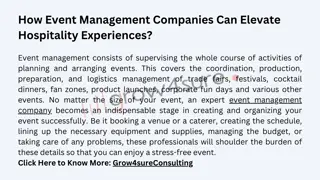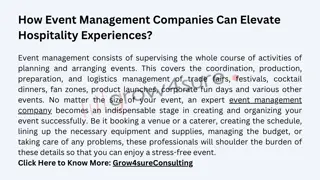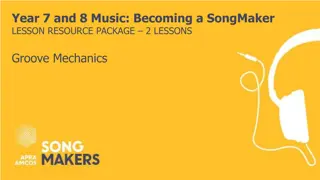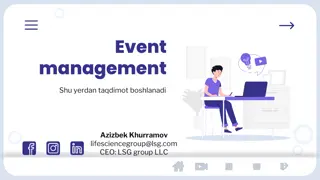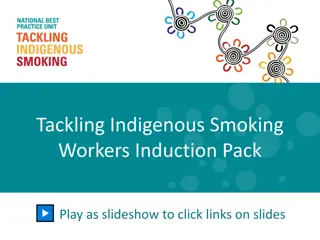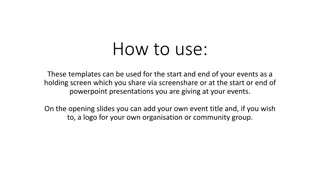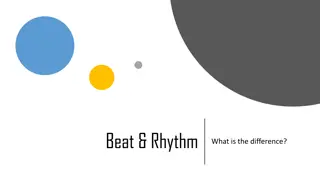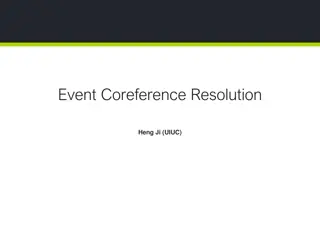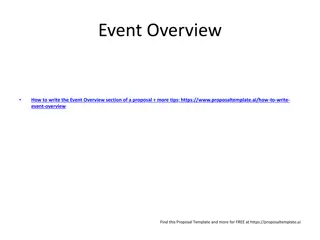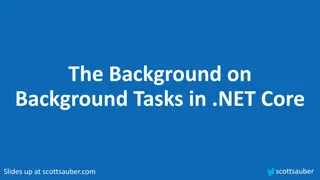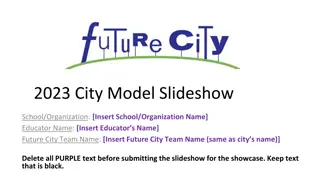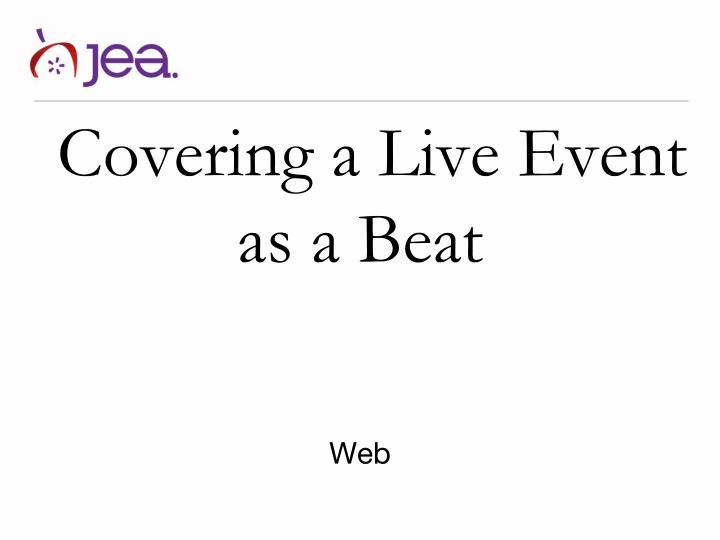
Effective Techniques for Live Event Reporting
Enhance your live event reporting skills with tips on sensory details, quotes, background information, and character narratives. Learn the importance of pre-event preparations, research, interviewing diverse sources, and ethical considerations. Improve your storytelling and reporting process for successful coverage.
Download Presentation

Please find below an Image/Link to download the presentation.
The content on the website is provided AS IS for your information and personal use only. It may not be sold, licensed, or shared on other websites without obtaining consent from the author. If you encounter any issues during the download, it is possible that the publisher has removed the file from their server.
You are allowed to download the files provided on this website for personal or commercial use, subject to the condition that they are used lawfully. All files are the property of their respective owners.
The content on the website is provided AS IS for your information and personal use only. It may not be sold, licensed, or shared on other websites without obtaining consent from the author.
E N D
Presentation Transcript
Covering a Live Event as a Beat Web
Observation and storytelling Giants game story Read through this and take notes of the following: Specific sensory details Direct quotes Background information Characters in the narrative
Preparing for a Beat Anywhere from 50% to 70% of the story could be written before it happens. (this changes if something unexpected happened) But you will already know most of the who/what/when/where/why/hows before you get to your event.
The reporting process First, do your research. Set up interviews with sources that matter. Vary the selection of your sources. Plan your questions for each source. Listen carefully during the interview and ask follow-up questions to be sure you understand everything they say. Be conversational, be in control, and be ready to follow up. Check back for facts and quotes.
What to know prior ... Research the topic. Look for statistics, background information and facts related to the topic. Build questions and determine your angle.
What to know prior ... Research your sources. What is their expertise? What might they know and be able to add?
What to know prior ... An example: You are assigned to cover the homecoming assembly What do you need to know before the event? Where can you find information? Whom would you interview? Discuss now and record your responses
Who are the best sources? It is tempting to interview only people you know. Friends, family members and teachers provide comfort.
Talk to more than your friends Ethics - Discuss Why do you need to talk to people OUTSIDE of your circle of friends?
Who are the best sources? Do your research before selecting your sources. Find sources who have expertise on the topic. Interview sources who offer varying perspectives or points of view. Find sources to provide first-hand accounts of events.
Who are the best sources? When choosing sources for a story, consider: Balance, varying perspectives, opposing viewpoints, expertise Age, gender, race and ethnicity Choose the sources who best serve the story, not the sources who are easiest to reach and most comfortable to talk to.
Who are the best sources? Consider the various constituents or stakeholders: Sports:
Who are the best sources? Consider the various constituents or stakeholders: Politics:
Who are the best sources? Consider the various constituents or stakeholders: School Policy:
Who are the best sources? Consider the various constituents or stakeholders: Homecoming:
Final notes Take great notes of everything you observe. Check your facts. Check any information gained from the sources. Accuracy matters. Transcribe your interviews as soon as possible. Let your sources know that you might need to get back with them for additional information and fact-checking. (so get contact info!)

